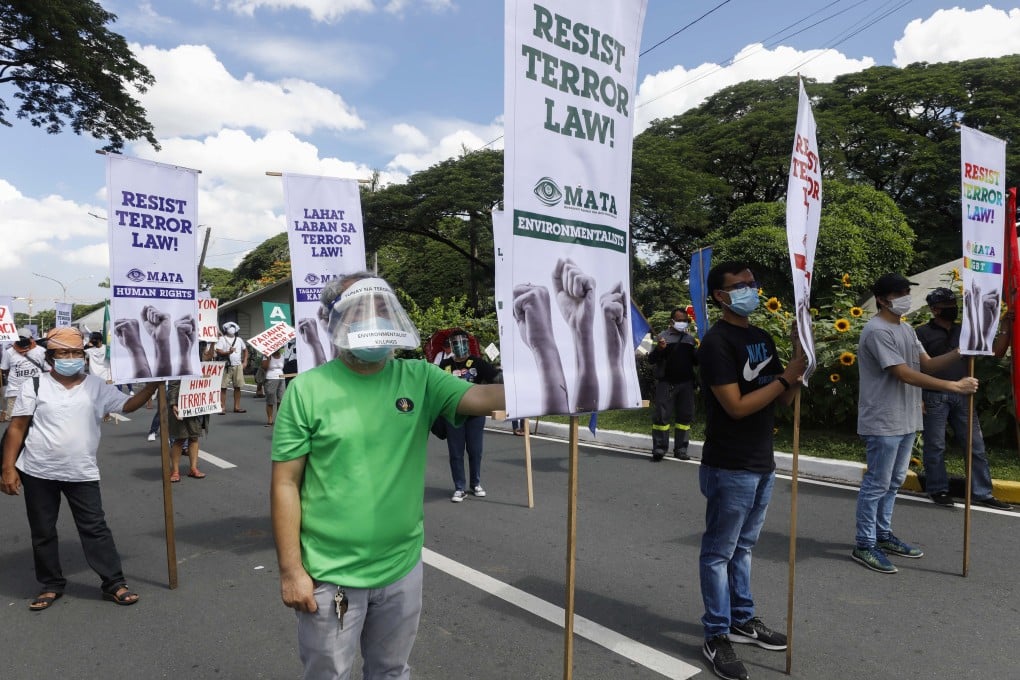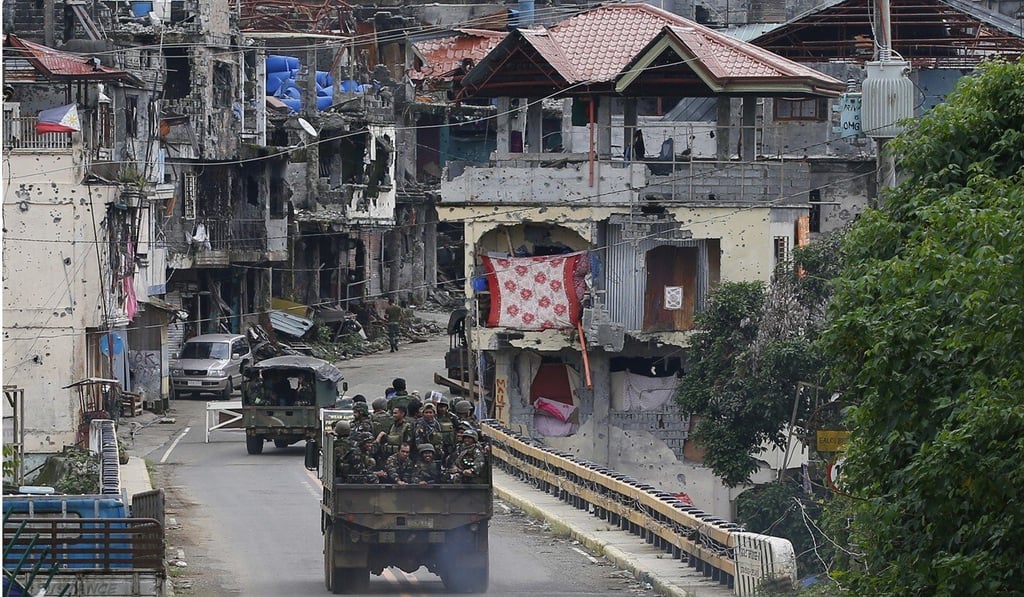Advertisement
Criticising China could be ‘terrorism’ under Philippines’ anti-terror law, warn retired Supreme Court justices
- Retired Supreme Court justices Conchita Carpio-Morales and Antonio Carpio and scholar Jay Batongbacal file petition against Duterte’s Anti-Terrorism Act
- They say controversial law is so vague it could even be used to censure their criticisms of Beijing’s actions in the South China Sea
Reading Time:3 minutes
Why you can trust SCMP

Two former Supreme Court justices and a maritime law expert have filed a petition to scrap the Philippines’ recently passed anti-terrorism law on the grounds they could be labelled “terrorists” for criticising the country’s relationship with China.
The petitioners say government officials have already labelled them “warmongers” and accused them of escalating tensions with Beijing. They say the law is so broad and vague that it could be used to censure them and other government critics rather than the Islamic terrorists it is supposedly aimed at.
Signed into law on July 3 by President Rodrigo Duterte, the Anti-Terrorism Act (ATA) defines a new crime, “terrorism”, under which it lists six related offences. The act allows the president, through nine cabinet members sitting on the 10-member Anti-Terrorism Council, to designate anyone a “terrorist”. That person can then be arrested without a warrant and detained for up to 24 days without charge, violating the constitutional right to be freed after three days if no charges are brought. The law includes “inciting to commit” terrorism, which covers speeches, proclamations, writings, emblems and banners. The maximum penalty for terrorism is life imprisonment without parole; for inciting terrorism the maximum sentence is 12 years’ imprisonment.
Advertisement
The law is supposed to counter jihadist groups such as the ones that attacked and seized Marawi City in 2017, but critics fear it will be used to stifle any type of dissent. Some say the law’s repressiveness and disregard of human rights is reminiscent of the dictatorship of Ferdinand Marcos.

Advertisement
The law has caused an uproar and 16 petitions have been filed against it at the Supreme Court.
Advertisement
Select Voice
Select Speed
1.00x